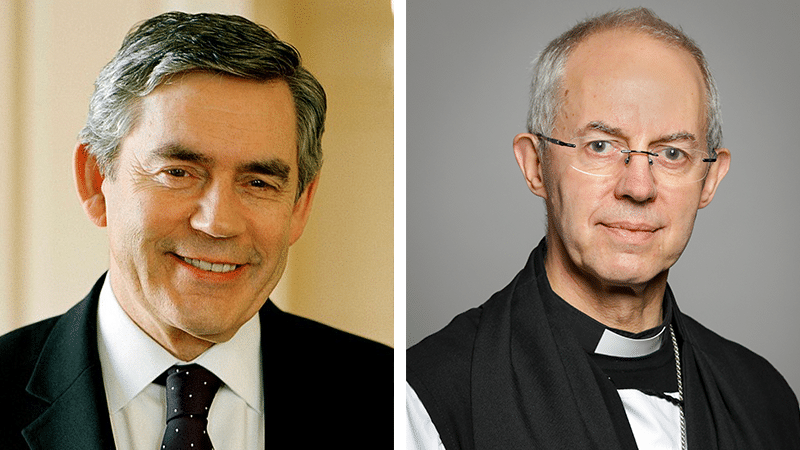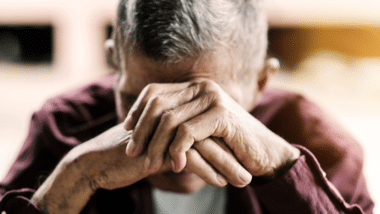Justin Welby and Gordon Brown have swelled the ranks of those opposing Baroness Meacher’s Assisted Dying Bill, ahead of it being debated in the House of Lords.
The Archbishop of Canterbury wrote to Peers saying the plans to legalise assisted suicide threaten the “precious gift of life”, and that the focus should shift to improving palliative care.
Together with the Chief Rabbi Ephraim Mirvis, and the UK’s most senior Roman Catholic cardinal, Vincent Nichols, he expressed “profound disquiet” at the plans, saying the proposals contained “risks and dangers” and that the proposed safeguards were inadequate.
‘Common bond of humanity’
They said: “By the faiths we profess, we hold every human life to be a precious gift of the Creator, to be upheld and protected. All people of faith, and those of none, can share our concern that the common good is not served by policies or actions that would place very many vulnerable people in more vulnerable positions.
“We appeal to people of whatever faith or belief to join us through our common bond of humanity in caring for the most vulnerable people within our society. In contrast to the proposals in this Bill, we continue to call for measures to make high-quality palliative care available to all at the end of their lives.
“We believe that the aim of a compassionate society should be assisted living rather than an acceptance of assisted suicide.”
‘Sanctity of life’
Former Prime Minister Gordon Brown expressed his feelings in an article for The Times, in which he also said that lawmakers have to consider if those who are dying would be better served by improving existing forms of care.
“I believe that when we analyse this, we will conclude that the bill to legalise assisted dying gets the balance wrong between individual autonomy and the sanctity of life.”
He added: “When I think of the kind of care my wife, Sarah, and I saw at first hand when we did some voluntary work in our local hospice, and the compassionate way that sensitive doctoring and nursing responded to individual wishes without undermining the sanctity of life, I am sure that there is such a thing as a dignified death.”
Frail and vulnerable
Brown continued: “If death were to become not just an option but something close to an entitlement through the bureaucratic processes that an act of parliament’s provisions impose, we would, in my view, be altering fundamentally the way we think about mortality.
“The risk of pressures, however subtle and indirect, on the frail and the vulnerable, who may feel their existence burdensome to others, cannot ever be entirely excluded. And the inevitable erosion of trust in the caring professions – if they were in a position to end life – would be to lose something very precious.”
He concluded: “while the end result may not be called assisted dying on demand, harm will be caused. Better to provide palliative care that we know is caring and loving and will make possible a good death.”
Boris Johnson and Health Secretary Sajid Javid are both understood to oppose changing the assisted suicide law.
PM will not back weaker assisted suicide laws
Labour Peer: ‘Even well-meaning assisted suicide activists are still wrong’
Senior doctor: Assisted suicide is ‘neither painless nor dignified’



